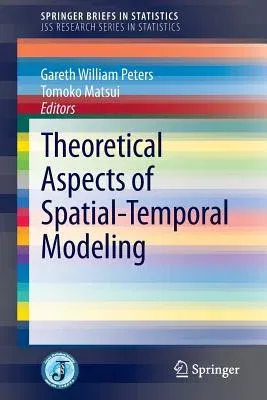Theoretical Aspects of Spatial-Temporal Modeling (2015)Paperback - 2015, 6 January 2016

Qty
1
Turbo
Ships in 2 - 3 days
In Stock
Free Delivery
Cash on Delivery
15 Days
Free Returns
Secure Checkout

Part of Series
Springerbriefs in Statistics
Part of Series
Springerbriefs in Statistics / Jss Research Series in Statis
Part of Series
Jss Research Series in Statistics
Part of Series
Jss Research Statistics
Print Length
124 pages
Language
English
Publisher
Springer
Date Published
6 Jan 2016
ISBN-10
4431553355
ISBN-13
9784431553359
Description
Product Details
Book Edition:
2015
Book Format:
Paperback
Country of Origin:
NL
Date Published:
6 January 2016
Dimensions:
23.39 x
15.6 x
0.76 cm
ISBN-10:
4431553355
ISBN-13:
9784431553359
Language:
English
Location:
Tokyo
Pages:
124
Publisher:
Series:
Weight:
208.65 gm